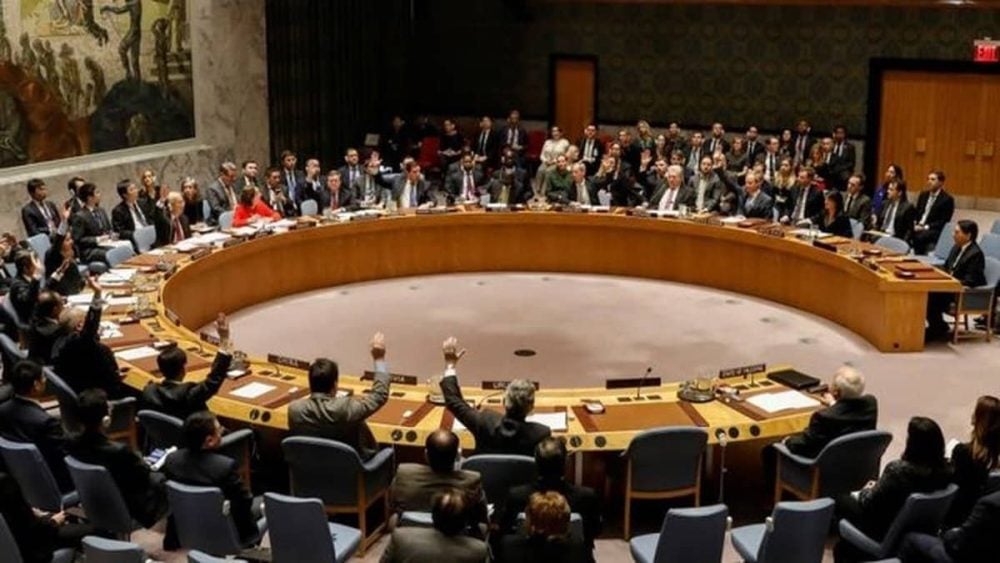Facebook
Twitter
LinkedIn
Pinterest
Reddit
Email
Print
 File photo: A vote at the U.N. Security Council in New York
File photo: A vote at the U.N. Security Council in New York
Three-minute read
Amid escalating tensions over its nuclear activities, the Iranian regime is entering a phase of growing international isolation and internal alarm. A series of statements from Iranian officials and European sources in recent days highlights increasing friction over Tehran’s nuclear transparency and the possible reactivation of UN sanctions through the “snapback mechanism.”
Europe Warns of Sanctions Without a New Deal
On July 14, Reuters quoted a senior French diplomatic source warning that in the absence of a new nuclear agreement that guarantees European security, European powers would be “forced” to trigger the snapback mechanism, restoring United Nations sanctions on Iran. Western countries continue to accuse Tehran of pursuing a nuclear weapon—an allegation Iran denies.
This development underscores a shift in European posture, with the possibility of coordinated transatlantic pressure now back on the table. The warning comes just as the Iranian regime’s relationship with the International Atomic Energy Agency (IAEA) has broken down, and internal regime figures voice growing hostility toward international oversight.
#Tehran‘s Bluster and Blackmail Can’t Hide a Regime in Crisishttps://t.co/nGHQB8QbIp
— NCRI-FAC (@iran_policy) July 13, 2025
Iran Dismisses Snapback as Legally Groundless
Reacting to the threat, Foreign Ministry spokesman Esmaeil Baghaee sharply criticized the legal basis of the snapback mechanism, calling it a “baseless and illegal tool.” Speaking on July 14, he said: “This so-called return mechanism has no legal, ethical, or political foundation. It’s merely an instrumentalization of a clause inserted in Resolution 2231 and the JCPOA under special circumstances.”
Baghaei also accused European parties of breaching the JCPOA themselves and claimed they no longer had any legitimate standing to invoke snapback provisions.
Deputy Foreign Minister Kazem Gharibabadi confirmed on July 13 that Iran has suspended all cooperation with the IAEA.
“Until we are no longer in a defensive position, negotiations are meaningless,” he stated.
He added that the Supreme National Security Council is now the sole decision-maker regarding any IAEA request or future cooperation.
#Iran News: Tehran Suspends Nuclear Oversight, Cuts Ties with @iaeaorg Monitors Amid Escalating Tensionshttps://t.co/scq1XpPpjO
— NCRI-FAC (@iran_policy) July 2, 2025
This statement follows Gharibabadi’s earlier warning to European countries not to activate the snapback sanctions, arguing that such a move would “complicate matters.” He also noted that no IAEA inspectors are currently operating in Iran and questioned their purpose, claiming that many of the targeted enrichment sites had already been attacked by Western forces.
Tehran Accuses IAEA of Leaking Classified Data
Adding to the growing tension, Vice Speaker of Parliament Mahmoud Nabavian publicly accused IAEA Director General Rafael Grossi of leaking confidential nuclear data.
“All our main nuclear information was given to them by Mr. Grossi. Even confidential reports were leaked to newspapers before they were discussed in the agency,” he said.
This accusation, unprecedented in its tone and directness, reflects deep concern within the regime over exposure of sensitive information regarding its covert nuclear infrastructure.
#Iran News: Regime FM Defiant After Blocking @iaeaorg, Warns Europe Against “Snapback” Sanctionshttps://t.co/rT3fiPTFwa
— NCRI-FAC (@iran_policy) June 28, 2025
But Nabavian went even further. In a separate interview with Fars News, he claimed that Iranian authorities had discovered suspicious microchips embedded in the shoes of IAEA inspectors. “Why is it,” he asked, “that when inspectors come into our nuclear sites and undergo body searches, we find microchips in their shoes?”
Calling IAEA personnel “spies” outright, Nabavian declared, “We’re not making slogans. This is a fact.” Such language signals a collapse of even the pretense of cooperation with international nuclear oversight and lays bare Tehran’s paranoia amid fears of infiltration, sabotage, and surveillance.
A Regime Under Pressure and Isolation
These coordinated responses from Iranian officials reflect a regime increasingly on the defensive, seeking to discredit international mechanisms and reframe the narrative. However, the pressure is clearly mounting. With European patience wearing thin, and oversight mechanisms now entirely suspended, Tehran faces a renewed risk of diplomatic isolation, UN sanctions, and international confrontation.
The developments also underscore the regime’s strategic fear: that any concession to the international community or its agencies would not only expose hidden vulnerabilities but also erode the already fragile morale of the security forces tasked with preserving its rule.
